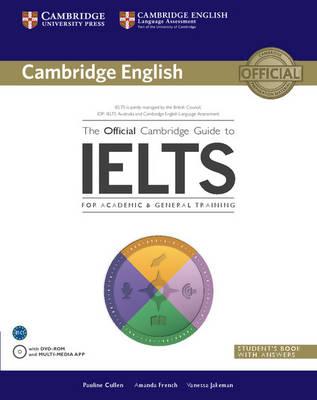Soil Nitrogen Uses and Environmental Impacts hardcover english - 27 Mar 2018
Now:
AED 1704.90 Inclusive of VAT
 Free Delivery
Free Delivery
Get it by 26 Jan

Earn AED 85.25 cashback with the Mashreq noon Credit Card. Apply now




1
Free delivery on Lockers & Pickup Points
Learn more
Enjoy hassle free returns with this offer.

Item as Described
70%
Partner Since
4+ Years
Great Recent Rating
Specifications
| Publisher | Taylor And Francis Ltd |
| ISBN 13 | 9781138626362 |
| Book Description | Nitrogen (N) is potentially one of the most complex elements on the Earth. It is necessary for all biological activity, but creates negative impacts on water and air quality. There is a balancing act between deficiency and surplus and the forms of N available further complicate our understanding of the dynamics. Biological fixation provides some plants with N supply while others are totally dependent upon N being available in the soil profile for the roots to extract. Nevertheless, the demand for N will increase because the human population with its increasing growth requires more protein and thus more N. Understanding the global N cycle is imperative to meeting current and future nitrogen demands while decreasing environmental impacts. This book discusses availability, production, and recycling of N in air, water, plants, and soils. It features information on N impacts to soil and water quality, management of N in agroecosystems, and techniques to maximize the use efficiency while minimizing the risks of leakage of reactive N into the environment. This volume in the Advances in Soil Science series is specifically devoted to availability, production, and recycling of N with impact on climate change and water quality, and management of N in agroecosystems in the context of maximizing the use efficiency and minimizing the risks of leakage of reactive N (NO-3, N2O) into the environment. |
| About the Author | Rattan Lal, Ph.D., is a Distinguished University Professor of Soil Science and Director of the Carbon Management and Sequestration Center, The Ohio State University, and an Adjunct Professor at the University of Iceland. His current research focus is on climate-resilient agriculture, soil carbon sequestration, sustainable intensification, enhancing use efficiency of agroecosystems, and sustainable management of soil resources of the tropics. He received honorary degrees of Doctor of Science from Punjab Agricultural University (2001), the Norwegian University of Life Sciences, Aas (2005), Alecu Russo Balti State University, Moldova (2010), Technical University of Dresden, Germany (2015), and University of Lleida, Spain (2017). He was president of the World Association of the Soil and Water Conservation (1987-1990), the International Soil Tillage Research Organization (1988- 1991), the Soil Science Society of America (2005-2007), and is President Elect of International Union of Soil Science. He was a member of the Federal Advisory Committee on U.S. National Assessment of Climate Change-NCADAC (2010-2013), member of the SERDP Scientific Advisory Board of the US-DOE (2011-), Senior Science Advisor to the Global Soil Forum of Institute for Advanced Sustainability Studies, Potsdam, Germany (2010-), member of the Advisory Board of Joint Program Initiative of Agriculture, Food Security and Climate Change (FACCE-JPI) of the European Union (2013-), and Chair of the Advisory Board of the Institute for Integrated Management of Material Fluxes and Resources of the United Nations University (UNU-FLORES), Dresden, Germany (2014- 2017). Prof. Lal was a lead author of IPCC (1998-2000). He has mentored 106 graduate students and 54 postdoctoral researchers, and hosted 156 visiting scholars. He has authored/co-authored 818 refereed journal articles, has written 19 and edited/co-edited 65 books. For 3 years (2014, 2015, 2016), Reuter Thomson listed him among the world's most influential scientific minds and having citations of publications among the top 1% of scientists in agricultural sciences. B.A. Stewart, Ph.D., is Director of the Dryland Agriculture Institute and a distinguished professor of Agriculture at West Texas A&M University, Canyon, Texas. He is a former director of the USDA Conservation and Production Laboratory at Bushland, Texas; past president of the Soil Science Society of America; and member of the 1990-1993 Committee on Long-Range Soil and Water Policy, National Research Council, National Academy of Sciences. He is a fellow of the Soil Science Society of America, American Society of Agronomy, Soil and Water Conservation Society, a recipient of the USDA Superior Service Award, a recipient of the Hugh Hammond Bennett Award of the Soil and Water Conservation Society, and an honorary member of the International Union of Soil Sciences in 2008. In 2009, Dr. Stewart was inducted into the USDA Agriculture Research Service Science Hall of Fame. Dr. Stewart is very supportive of education and research on dryland agriculture. The B.A. and Jane Ann Stewart Dryland Agriculture Scholarship Fund was established at West Texas A&M University in 1994 to provide scholarships for undergraduate and graduate students with a demonstrated interest in dryland agriculture. |
| Language | English |
| Editor | Rattan Lal, B.A. Stewart |
| Publication Date | 27 Mar 2018 |
| Number of Pages | 380 |
Soil Nitrogen Uses and Environmental Impacts hardcover english - 27 Mar 2018
Added to cart
Cart Total AED 1704.90


























































































































